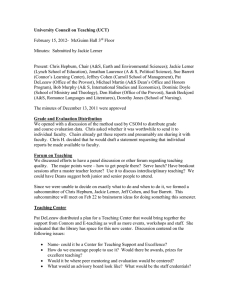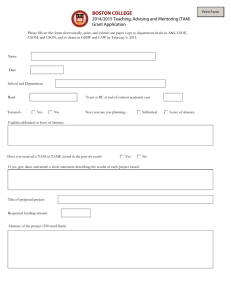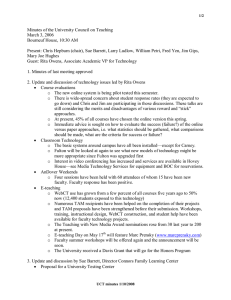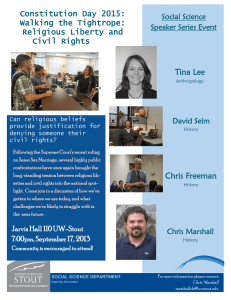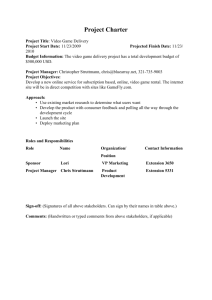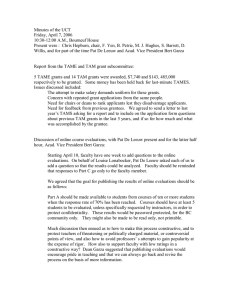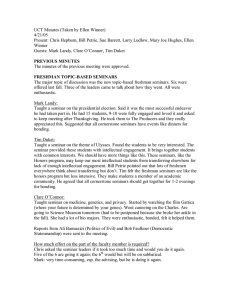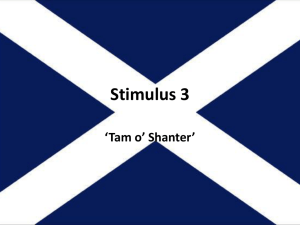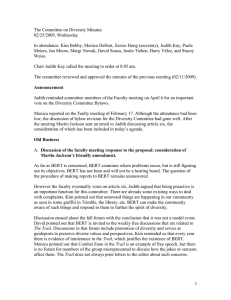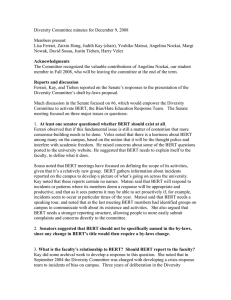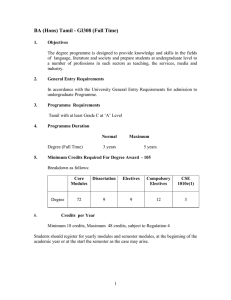Minutes of the University Council on Teaching 20062007 Council Members Present Council Members Absent
advertisement
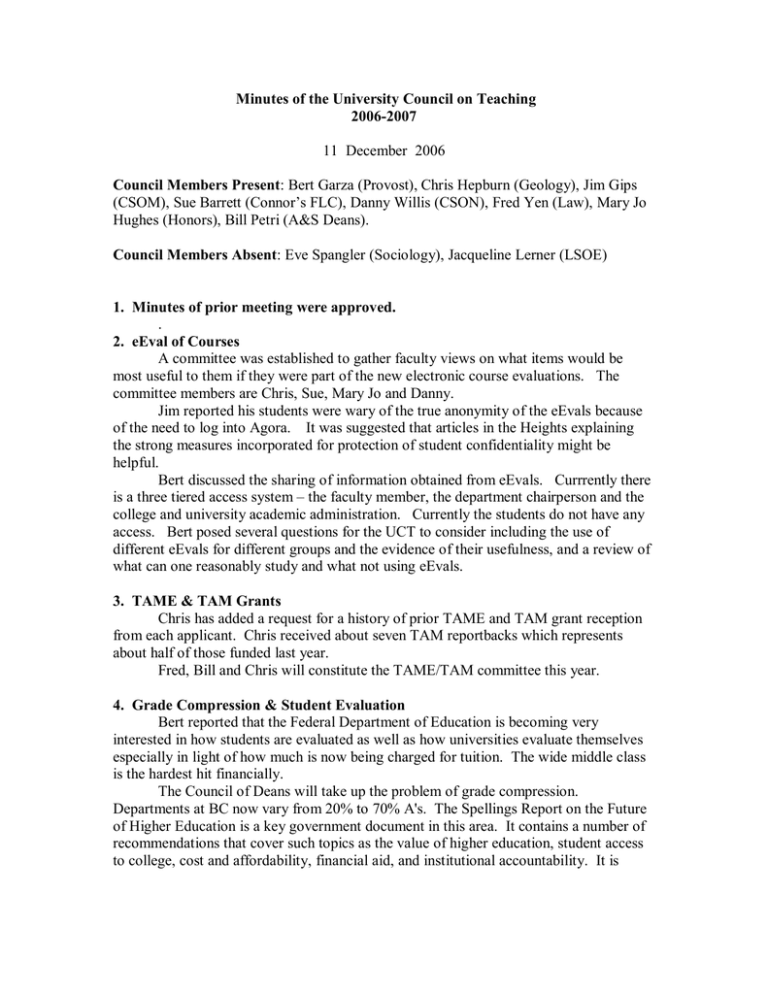
Minutes of the University Council on Teaching 2006­2007 11 December 2006 Council Members Present: Bert Garza (Provost), Chris Hepburn (Geology), Jim Gips (CSOM), Sue Barrett (Connor’s FLC), Danny Willis (CSON), Fred Yen (Law), Mary Jo Hughes (Honors), Bill Petri (A&S Deans). Council Members Absent: Eve Spangler (Sociology), Jacqueline Lerner (LSOE) 1. Minutes of prior meeting were approved. . 2. eEval of Courses A committee was established to gather faculty views on what items would be most useful to them if they were part of the new electronic course evaluations. The committee members are Chris, Sue, Mary Jo and Danny. Jim reported his students were wary of the true anonymity of the eEvals because of the need to log into Agora. It was suggested that articles in the Heights explaining the strong measures incorporated for protection of student confidentiality might be helpful. Bert discussed the sharing of information obtained from eEvals. Currrently there is a three tiered access system – the faculty member, the department chairperson and the college and university academic administration. Currently the students do not have any access. Bert posed several questions for the UCT to consider including the use of different eEvals for different groups and the evidence of their usefulness, and a review of what can one reasonably study and what not using eEvals. 3. TAME & TAM Grants Chris has added a request for a history of prior TAME and TAM grant reception from each applicant. Chris received about seven TAM reportbacks which represents about half of those funded last year. Fred, Bill and Chris will constitute the TAME/TAM committee this year. 4. Grade Compression & Student Evaluation Bert reported that the Federal Department of Education is becoming very interested in how students are evaluated as well as how universities evaluate themselves especially in light of how much is now being charged for tuition. The wide middle class is the hardest hit financially. The Council of Deans will take up the problem of grade compression. Departments at BC now vary from 20% to 70% A's. The Spellings Report on the Future of Higher Education is a key government document in this area. It contains a number of recommendations that cover such topics as the value of higher education, student access to college, cost and affordability, financial aid, and institutional accountability. It is likely that the federal government will want more data in these areas posted on the web for each school. BC will need to carefully consider how we evaluate students. Perhaps a portfolio over four years would be better than the current grade system. Ideas were expressed about other alternatives; for example, using a rank in course performance percentage or adding a new symbol for especially distinguished course performance. Accountability will be a key item. Disclosure of more precisely what families are receiving for their money will be required. The UCT may need to play an important role in this process. 5. Academic Integrity Academic integrity was discussed and the question of whether or not BC should seek to obtain a site license for detecting plagiarism via Turn It In dot com or similar was raised and tabled. (whp)
